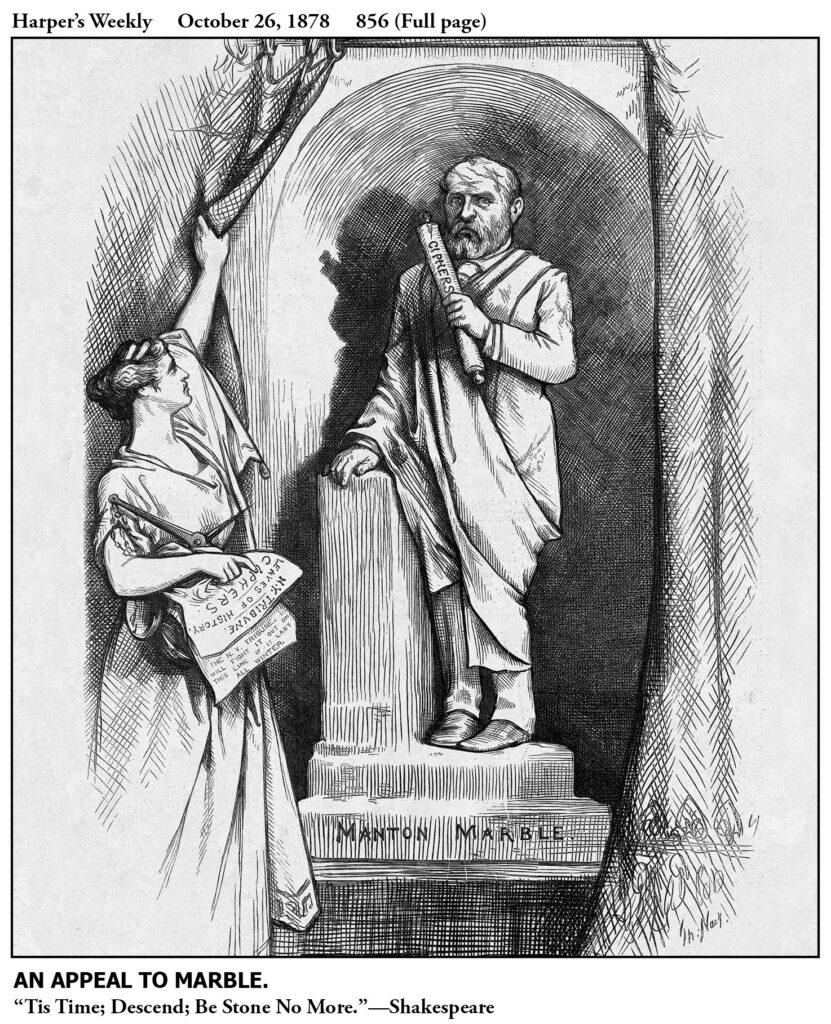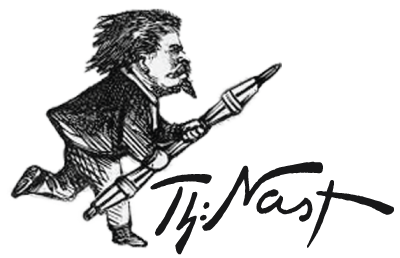
Harper’s Weekly – October 26, 1878
In 1876, the winner of the election between Republican Rutherford B. Hayes and Democrat Samuel J. Tilden could not be decided until the 19 electoral votes of four contested states — Louisiana (8), South Carolina (7), Florida (3) and Oregon (1) — were determined. If Tilden received just one vote, he would be President.
The so-called Returning Boards in each state would make the decisions, and were open to bribery. Manton Marble, the Democratic publisher of the New York World, tried and failed to bribe the Chairman of the three-man board in Florida. He used encrypted telegrams to obtain funding via Tilden’s nephew, William Pelton, who lived in his uncle’s bachelor home in New York.
The Marble-Pelton bribery scheme unexpectedly came to light more than a year into the Hayes Administration. In May 1878, the Democratic House, still smarting over Tilden’s loss, formed an investigating committee chaired by Clarkson Potter (NY) to try to prove that “Rutherfraud” Hayes was an illegitimate President. Although the committee was stacked with Hayes’s political enemies, its investigation foundered after several weeks because of weak evidence and the President’s openness.
Suddenly, the political witch hunt backfired, providing Nast a tremendous opportunity to continue flaying Tilden. The Tribune learned that a Republican Senate committee had a batch of incriminating telegrams, probably obtained illicitly from Western Union. Playing cat-and-mouse beginning in August, it printed bits and pieces of the translated telegrams over several weeks. In an expanded edition on October 7, it published its first major exposé detailing correspondence between Marble, C.W. Woolley (a Democrat “fixer”) and Pelton. It explained how it acquired and deciphered the telegrams, including the coded originals and their translations.
The reluctant Potter Committee was forced to investigate. Marble wiggled and lied, but Pelton confessed. Nast’s first shot was a blast at Marble, whom he had occasionally targeted as the inconsistent publisher of the World, but now had solid evidence of his public shaming. Accordingly, he toyed with his old adversary, using The Winter’s Tale from Shakespeare as the source of his pun.
